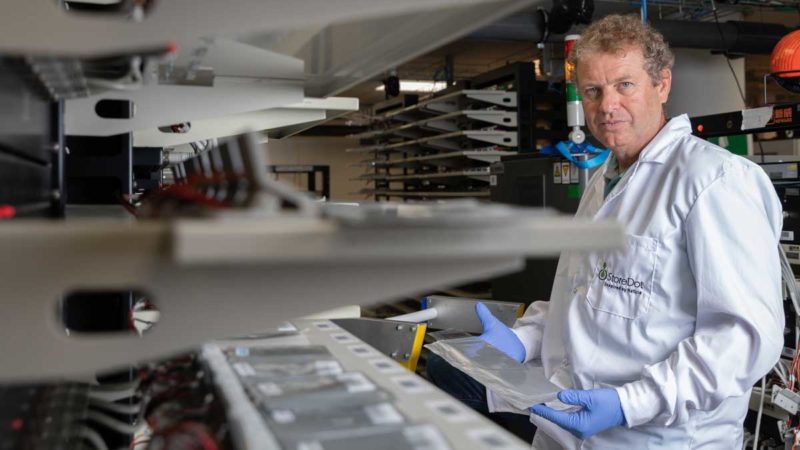Israeli battery developer StoreDot says it has developed new self-repairing battery cell technology that is able to regenerate underperforming battery cells while they are in use.
StoreDot, which was founded in 2012, announced on Wednesday that it has developed a new patented technology that identifies underperforming cells and temporarily takes them out of service to fix them, all without the driver becoming aware or experiencing any loss of performance.
Unsurprisingly, StoreDot is reticent to give too much away regarding the ‘how’ of its new technology. What we do know is that the newly developed system consists of a suite of software algorithms with corresponding hardware that are able to identify a cell or string of cells that are underperforming or overheating and then temporarily disable the problem-cells so as to recondition them back to 100% performance.
StoreDot says this “self-healing” battery cell technology has the potential to play a significant role in prolonging EV battery life and driving range, as well as improving safety by preventing battery overheating or any danger of thermal runaway.
“It’s important for us at StoreDot to encourage the global uptake of electric vehicles, so that we can all live in a cleaner, zero-emissions world,” said Dr Doron Myersdorf, StoreDot CEO.
“This latest patented technology is a unique way of repairing individual cells, or groups or cells, when they are in service is a novel advancement to self-repairing electric vehicles.
“This approach is truly transformative with huge real-world benefits for electric vehicle owners, improving performance, safety and the longevity of their vehicles. It also plays a crucial role in eradicating range-anxiety, which remains the main barrier to electric vehicle ownership.”
StoreDot is also the pioneer of its extreme fast charging (XFC) battery technology for EVs, which can charge cars in as little as 5 minutes.
“This paves the way for the launch of our second-generation, silicon-dominant anode prototype battery for electric vehicles later this year,” Myersdorf said.
“Our team of top scientists has overcome inherent challenges of XFC such as safety, cycle life and swelling by harnessing innovative materials and cell design. Today’s announcement marks an important milestone, moving XFC for the first time beyond innovation in the lab to a commercially viable product that is scalable for mass production.
Joshua S. Hill is a Melbourne-based journalist who has been writing about climate change, clean technology, and electric vehicles for over 15 years. He has been reporting on electric vehicles and clean technologies for Renew Economy and The Driven since 2012. His preferred mode of transport is his feet.

